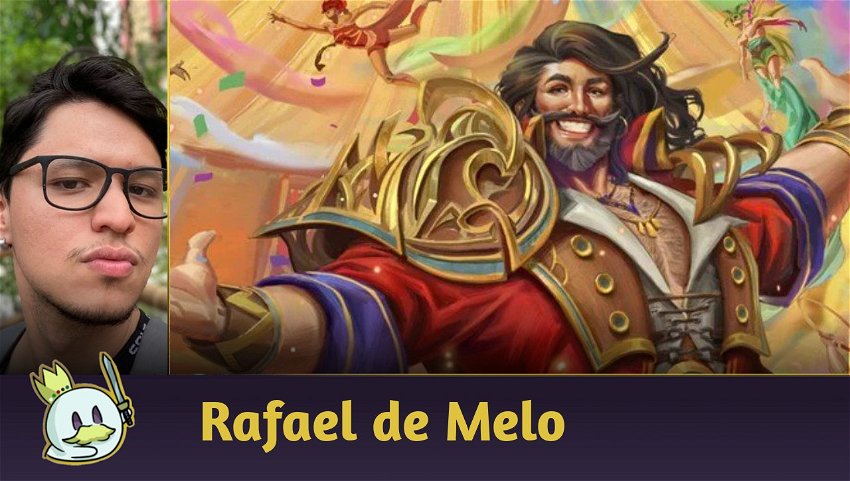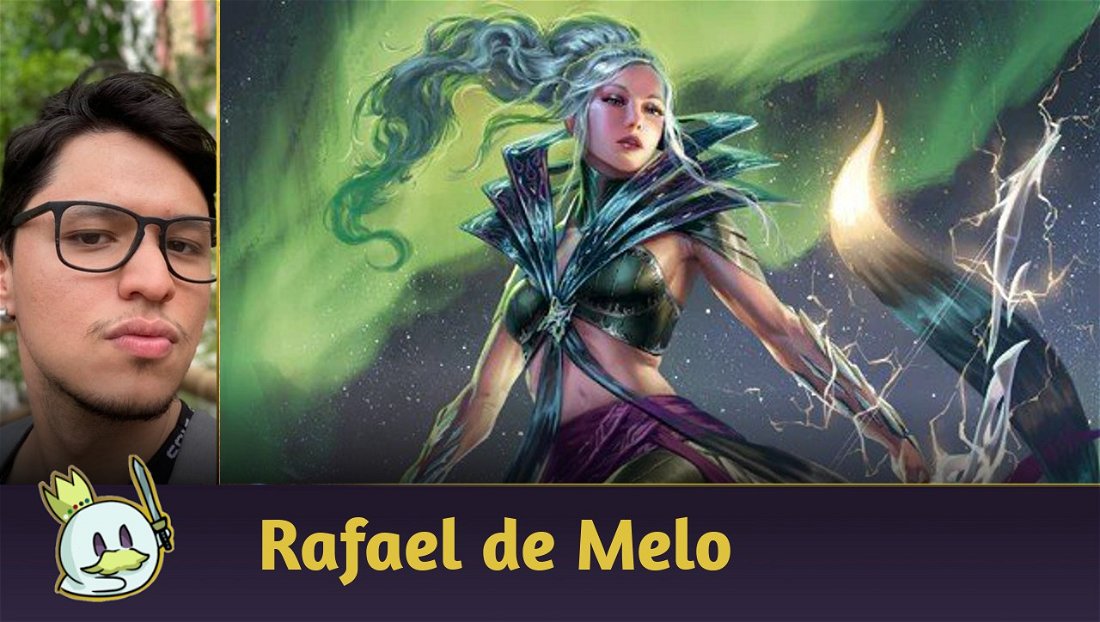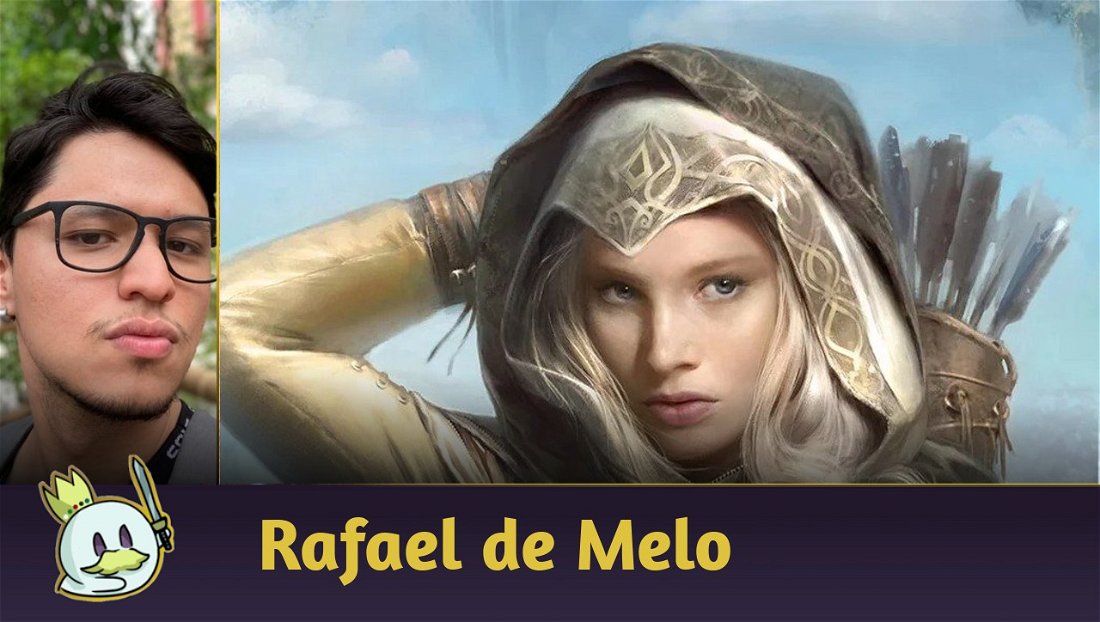Introduction
Recently, LSS made official a new format that had been in the works for some time, which now sees the light of day. We're talking about the Living Legend format, in which all heroes of the game are valid, and there are no banned cards. I'll show you my first impressions on what to expect from this new format and which decks seem exciting and promising to play.
If you want more detail about how this format works, I strongly suggest you read this other article.
Initial Thoughts
The first thing I thought was that this will be an eternal format. Just like HearthStone has the Wild format, Legends of Runeterra has the Eternal format, and Magic: The Gathering has Vintage, the Living Legend format is meant to be a place where we can use old friends who are no longer legal in other formats.
The format's greatest highlight, however, is that there are no banned and/or restricted cards, which makes absolutely any card in the game valid (except promo cards), besides the fact that any adult hero can be used in this format.
No Longer Banned
Before we head to the heroes, let's take a look at Classic Constructed's banned cards, because being able to use these cards creates endless dangerous possibilities, to a point. Let's elaborate which of them we can see as staples in this format from now on.
Duskblade never saw the light of day and has always remained in the dusk. Admittedly a design error, Runeblade's weapon was released banned and never got to play in constructed formats. Its biggest potential is that Runeblades can easily hoard counters on this weapon to a point it becomes impossible to deal with. Now free, absolutely any Runeblade can abuse this weapon and have a guaranteed win condition, and Briar, Warden of Thorns and Chane, Bound by Shadow are the ones who will get the most out of this weapon.
Awakening is a tutor for Guardian attacks that has everything to boost the player in the match. Besides getting an attack card at instant speed, the same costs practically "nothing" due to the number of Seismic Surges created - and you'll always have strong Guardian attacks: Oaken Old, Pulverize, Crippling Crush.
Bloodsheath Skeleta saw play for a certain time in Classic Constructed and has already shown us what it is capable of. Its extremely strong combo with Sonata Arcanix enables a guaranteed win, dealing more than forty arcane damage in a single turn - but its flexibility between Runeblades can make this card an almost mandatory equipment piece for this class.
Highlighted Heroes
As the format allows all adult heroes, we can imagine many lists, but some of them come to mind immediately. Let's explore a few of them and see the possibilities these heroes can create.
Alongside each hero, I'll leave a list that performed reasonably well in their time. These lists' goal is for us to know what the heroes' plans look like and think about them with new cards or banned cards at the time.

The first hero that immediately comes to mind in this format is Bravo, Star of the Show. This Flesh and Blood star is considered by many the strongest hero in the game so far, and his results at the time he was legal showcase how true this is.
This hero can make a simple Autumn's Touch (1) into a 9-power attack, with Dominate and Go Again. If this was already quite strong at the time, now we have new tools to make this hero even more oppressive. Cards such as Hypothermia and Star Struck didn't exist then, and with them this hero can become even more devastating than before.
Even though we have these new cards, this deck apparently plays the same way as before. Cards that have more than one talent, such as Pulse of Inseloft, will still be here to help with this hero's ability - he will be able to swap between them to create more value thanks to various defensive tools (Earth cards), and he will have excellent tools to disrupt his opponent, such as Channel Lake Frigid and Blizzard
His setup will be identical as it was before. Crown of Seeds can help him be more defensive to fatigue, but Crown of Providence can become his new favorite headpiece. Winter's Wail with the off-hand equipment piece, Stalagmite, Bastion of Isenloft, can help this hero in more aggressive matches in the style of Oldhim, Grandfather of Eternity, besides other Guardian equipment, such as Crater Fist and Tectonic Plating.
However, various new cards have come out since his departure from Classic Constructed. Cards such as Erase Face and the Inertia token (played mainly through Lexi, Livewire's arrows) can be ways to fight this hero - besides Ice type auras that are used well by Iyslander, Stormbind. Only time will tell if they'll be enough.

Briar, Warden of Thorns was a decent aggressive deck, and it was still valid in Classic Constructed for a time, however, in this format, several banned cards returned to make this deck even stronger than it was when this hero was new.

Its recent departure from Classic Constructed reminds us of a very aggressive deck with Channel Mount Heroic and Force of Nature turns, but that is only the beginning of this hero's potential with the entire pool available.

Thanks to Ball Lightning (1) and its interaction with Sting of Sorcery, we can deal an absurd amount of damage per turn. To keep this damage consistent, this list is focused on Lightning, with which we can get several Go Again besides boosting cards such as Force of Nature and Plunder Run (1).
Besides that, some new cards have come up since its golden days, and we have among them Swarming Gloomveil and Anthem of Spring, but the possible presence of Ice cards might make this hero's life harder.

If Briar, Warden of Thorns seems to be a very strong aggressive deck, Chane, Bound by Shadow will also be one. Besides the possibility of using the aforementioned Duskblade, this Runeblade's power becomes unlimited with Seeds of Agony (1) (restricted in its time), but can also use new cards that intended to target Vynnset, Iron Maiden.

The Rune Gate mechanic presented in Dusk Till Dawn might bring new possibilities to this hero, but its good old way of playing still makes it one of the best aggressive decks in the game.
Its idea is still the same: creating several Soul Shackle to consistently have a "second hand" in the banish zone, making this deck more and more dangerous as the match goes on - and if this strategy is capable of hitting Bravo, Star of the Show head on, it will certainly be good against other heroes.

Going in the opposite direction of aggression, Viserai, Rune Blood shows promise as one of the best control decks in the format. Even though today it is renowned for its aggressive version (be it with or without Crown of Dominion), the iconic Bloodsheath Skeleta allows this Runeblade to stack Runechant more and more (thanks to its ability and cards such as Mordred Tide, Reduce to Runechant (1) and Read the Runes (1)) to break this equipment piece and create a gigantic Sonata Arcanix, like so guaranteeing victory.

However, more recent tools might make this deck more consistent. The equipment piece Grimoire of the Haunt provides Arcane Barrier and Scepter of Pain can easily create a Runechant (Flail of Agony style, but without needing to attack), Blessing of Occult (1) is another way of creating tokens and Sonata Fantasmia is an excellent finisher with Bloodsheath Skeleta, guaranteeing that your opponent will practically discard their whole hand and becomes unable to pay for the full arcane damage that will come next.

The newest Living Legend has proven to be very consistent in what it intends to do. Thanks to Outsiders and her quick climb in the ranks, Lexi, Livewire has shown it is one of the strongest aggressive decks ever seen in the game.
Several arrows, like Infecting Shot (1), Heat Seeker and Endless Arrow, make your opponent's life harder when it comes to knowing what to block, and all of them can return as threats with Codex of Frailty.
As one of the most recent ones to reach this status, she brings the latest mechanics in the game, but can still play "the original way" with her Ice version using Frost Lock and Chilling Icevein (1). Her cadence, created by Voltaire, Strike Twice and the number of on-hit effects, can push other decks against the wall, besides being able to play with six cards thanks to New Horizon.

One of the most beloved heroes in the game also shows up here. Prism, Sculptor of Arc Light is one of the most iconic decks and showcases how the Illusionist class can be strong with the right support.
Prism, Sculptor of Arc Light check-mated any deck that used a single, gigantic hit, not only as it can defend itself well with cards such as Soul Shield, but also as it creates an army of auras with Spectra (all with Go Again thanks to Luminaris and interactions among themselves) and also kills the opponent with several "Harmonized Kodachi". Even if your opponent's deck could deal with all of this, its Phantasm attack increased the challenge.

This Illusionist has never seen some of the more recent cards in her deck, and they can be interesting to her strategy. Invoke Suraya can help this hero survive for longer, Angelic Wrath (2) can increase her attack's power and Empyrean Rapture helps her play Spectral Shield "for free".
But, besides this version, Prism, Awakener of Sol's "two point O" version seems very promising in this format.

With access to Luminaris, her version geared towards Figments can be explored in depth in Classic Constructed, because it has all the advantages of its old version and can still bring allied angels to help you in combat. Figment of Protection and Figment of Erution are the ones that come to mind - but, with the presence of auras with Spectra, she can take her strategy to another level.

The loved and hated ice wizard, Iyslander, Stormbind, shows great potential in this format. This potential can be extracted to the max with cards that are banned in Classic Constructed and can be used freely here.

This wizard can be the tool needed to contain any deck that would like to be hyper aggressive. Its control tools are so powerful that decks with long combat chains should respect this deck's resourcefulness.
Hypothermia practically ends any of these deck's turns, the Aether Icevein (1) with Amulet of Ice and Insidious Chill mix can end any hand and the Frost Hex with Ice Eternal combo can finish longer games.
Besides that, its game plan is extremely geared toward value, using cards such as Wounded Bull (1) and Fyendal's Fighting Spirit (1), which make this deck challenging, but rewarding, to any player who knows how to take advantage of each card.
However, Iyslander, Stormbind has never faced Bravo, Star of the Show and Chane, Bound by Shadow. So, only time will tell how matches against these heroes will go.

Fai, Rising Rebellion is a decent aggressive deck in Classic Constructed, but, once we're able to access several banned cards, it can become one of the most explosive decks in the entire game.

With the right prep (and the help of a Blossom of Spring), this ninja can easily build a turn with Art of War, break Stubby Hammerers, correct its hand with Belittle (1) (tutoring Minnowism (3)) and create a very long combat chain that only this deck can build.
Other cards can boost all of this even more, such as Spreading Flames, Snatch (1) with Snapdragon Scalers' Go Again and Mask of the Pouncing Lynx tutoring cards such as Lava Burst or Salt the Wound. It is so much damage that it can leave your opponent very close to death, or just plain kill them.
Even with all this firepower, this ninja can be stopped by the other Ice heroes mentioned before, but, even then, it is a very promising deck that can go over the other ones.
Honorable Mentions
There are still two heroes that are promising in this format. Let's discuss each of them a bit.

In his time, Oldhim, Grandfather of Eternity was a hero that stood out tremendously with its fatigue version. The plan was holding off as much damage as possible until its opponent ran out of options, guaranteeing, like so, the victory with several Winter's Wail attacks. However, here, this Guardian can access a few extra cards.

Besides the aforementioned Awakening, a perfect attack that fits this strategy is Drone of Brutality (1), which allows this deck to never end, and Pulse of Isenloft as a card that activates this hero's two effects simultaneously.
Winter’s Wail, Amulet of Ice and Hypothermia are other cards that were banned at the time and can now return to this deck.
Another new card that can show up is Nothern Winds, which is a good way of avoiding the activation of something played by your opponent for one turn.
This Guardian's biggest issue, however, is Prism, Sculptor of Arc Light. This Illusionist can create so many auras, and it is so difficult to break them that, as the game goes on, it gets even more impossible to win the match. As much as you have Crown of Seeds, Stalagmite, Bastion of Isenloft and Channel Lake Frigid, unfortunately, this deck doesn't encompass all these permanents well.

Another deck that can be decent in this format is Dromai, Ash Artist. Even though this hero is currently far from reaching Living Legend status in Classic Constructed, new tools, such as Tome of Imperial Flame and Flicker Trick, can put her up in the running.
An issue is the fact that this hero has never played against several opponents: Bravo, Star of the Show, Chane, Bound By Shadow and Viserai, Rune Blood's control version are just some of them. We'll need to analyze how she performs against these older heroes so that we can then determine how she stands in this format, but the fact she can create an uncontrollable board state with Dragons can possibly make her decent.
Final Words
This format is still very unknown. For now, players are testing more and more lists to know which are the best heroes, and we'll see the results of these efforts made by the community at Worlds, where we'll have a separate event dedicated to this format.
What about you, what did you think of the format? Will Bravo, Star of the Show be oppressive to all? Will not having any banned cards break this format in two? Share your thoughts in the comment section!
Thank you for reading and see you next time.














— Comentarios 0
, Reacciones 1
Se el primero en comentar